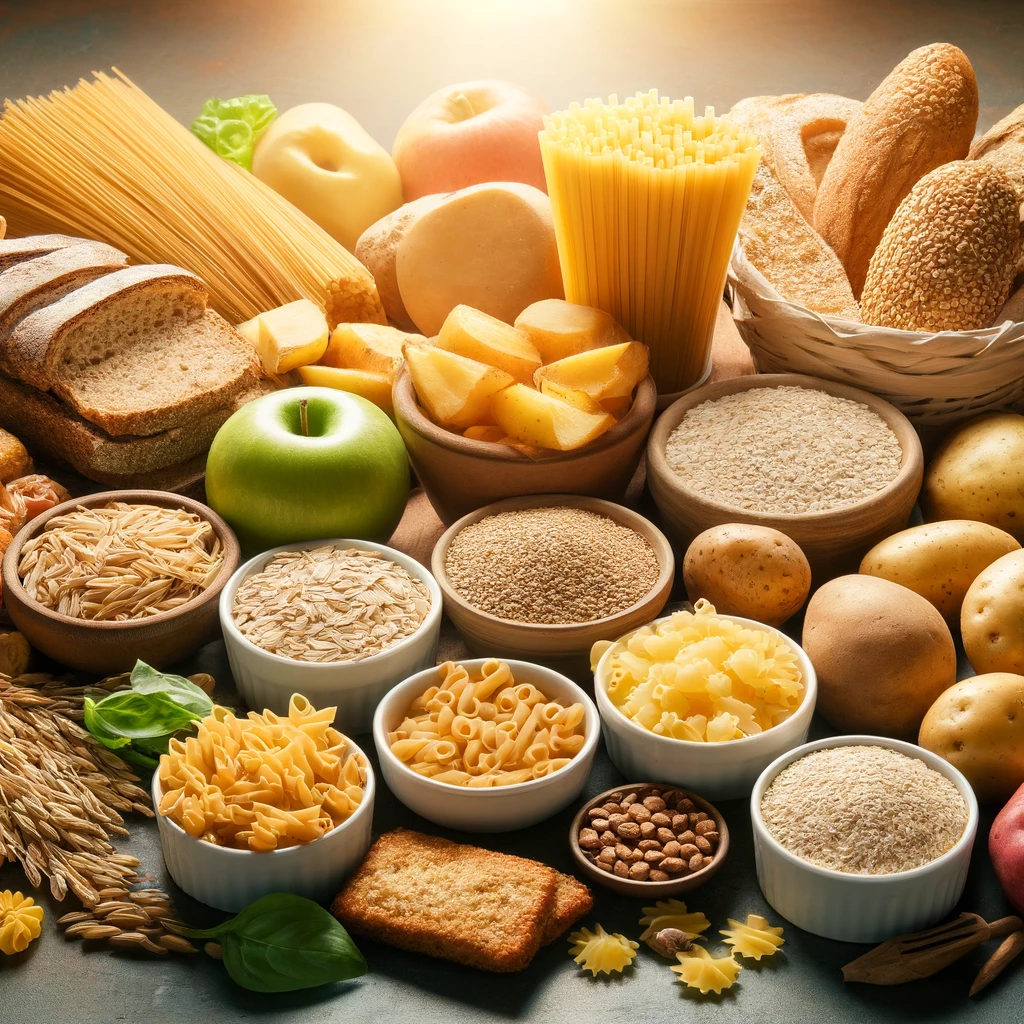Cutting carbs from your diet has been a trending strategy for weight loss and health improvement. But what exactly happens to your body when you embark on a 7-day low-carb journey?
From initial water weight loss to cognitive effects, this article explores the physiological and psychological changes you may experience.
What Are Carbs and Why Do We Need Them?

Carbohydrates, one of the three primary macronutrients, are essential for providing energy to the body. They fuel muscles, support brain function, and play a vital role in maintaining digestive health by supplying dietary fiber.
Most people consume carbohydrates through grains, fruits, vegetables, and legumes, which are broken down into glucose for immediate energy or stored as glycogen for future use.
The First 7 Days: What Happens?
Day 1-2: Water Weight Loss
In the first two days of cutting carbs, your body begins to deplete glycogen stores. Glycogen binds to water, so as your body burns through its reserves, it releases a significant amount of water.
This is why people often see rapid weight loss at the start of a low-carb diet, but it’s important to note that this is mostly water weight and not fat loss.
Day 3-4: Fatigue and “Keto Flu”
By day three or four, your body enters a phase known as “keto flu.” Symptoms include headaches, fatigue, dizziness, and nausea.
This happens because your body switches from using carbohydrates as its primary fuel source to burning fat. As a byproduct of this switch, ketones are released, which can initially lead to feelings of sluggishness.
Day 5-7: Fat-Burning Mode and Appetite Suppression
By the end of the week, your body adapts to using fat as fuel through a process called ketosis. During this phase, you may notice a decrease in appetite, as fat tends to keep you full longer.
Additionally, ketosis has been linked to improved cognitive function, with some studies suggesting benefits for memory and focus.
Physical Effects of Cutting Carbs
1. Weight Loss
The most obvious benefit of cutting carbs for a week is weight loss. However, it’s important to understand that much of the initial drop in weight is due to water loss.
After the glycogen stores are depleted, your body begins to burn fat for energy, leading to more sustainable fat loss over time.
2. Reduced Energy Levels
Carbohydrates are the body’s preferred source of energy. When you remove them from your diet, it can take time for your body to adjust.
Fat is a slower-burning fuel, meaning that during high-intensity activities, you might experience reduced performance and endurance.
3. Impact on Gut Health
Cutting carbs, especially fiber-rich foods like whole grains and fruits, can impact your digestive system. Fiber helps maintain a healthy gut microbiome, so eliminating carbs might cause digestive discomfort, including constipation.
Cognitive and Mental Effects
1. Initial Brain Fog
Carbs are also a vital fuel source for your brain. During the first few days of a low-carb diet, you might experience brain fog, mood swings, and difficulty concentrating as your brain adapts to using ketones instead of glucose for energy.
2. Cognitive Benefits
Once ketosis kicks in, many people report improved mental clarity and focus. Research has shown that a ketogenic state may have neuroprotective properties and even help with conditions like Alzheimer’s disease.
Low-Carb vs. High-Carb Diet Impact (Over 7 Days)
| Effect | Low-Carb Diet | High-Carb Diet |
|---|---|---|
| Weight Loss | Initial rapid water loss, followed by fat burning | Sustained, slower weight loss |
| Energy Levels | Initial drop, followed by fat-based energy | Consistent, but may include energy spikes |
| Digestive Health | Possible constipation due to lack of fiber | Regular digestion, more fiber intake |
| Mental Clarity | Brain fog initially, then improved clarity | Consistent, with occasional energy crashes |
| Appetite Control | Reduced hunger, especially for sweets | Fluctuations depending on food types |
Conclusion
Cutting carbs for 7 days triggers significant physiological changes, starting with rapid water weight loss and culminating in fat burning and appetite suppression.
While the initial adjustment phase can include symptoms like fatigue and digestive discomfort, many people experience improved mental clarity and focus as the body adapts to ketosis.
However, as with any diet, balance and sustainability are key. Before making drastic changes to your diet, consult with a healthcare provider to ensure it’s the right approach for your health goals.
FAQs
1. Can I eat any carbs during these 7 days?
Yes, you can still consume healthy, complex carbs in small amounts like leafy greens or low-carb vegetables. Avoid refined carbs like white bread and sugar.
2. Will I lose fat or muscle on a low-carb diet?
In the first few days, you may lose water weight. Fat loss begins after glycogen stores are depleted. To prevent muscle loss, ensure you’re consuming adequate protein.
3. What is the “keto flu,” and how can I avoid it?
The “keto flu” refers to symptoms like headaches and fatigue as your body adapts to fat burning. Staying hydrated and replenishing electrolytes can help alleviate these symptoms.
4. Is a low-carb diet safe for everyone?
While generally safe for many people, those with certain health conditions (e.g., diabetes) should consult a healthcare provider before drastically cutting carbs.
5. Will cutting carbs improve my mental performance?
Once your body adjusts to fat as a primary fuel source, you may notice improvements in focus and memory.
References
- “What Happens When You Stop Eating Carbs” – EatingWell
- “Low-Carb Diet Side Effects: What Happens to Your Body” – Livestrong
- “What Really Happens To Your Body When You Stop Eating Carbs” – TheList
- “This Is What Happens to Your Body When You Cut Carbs” – Byrdie



